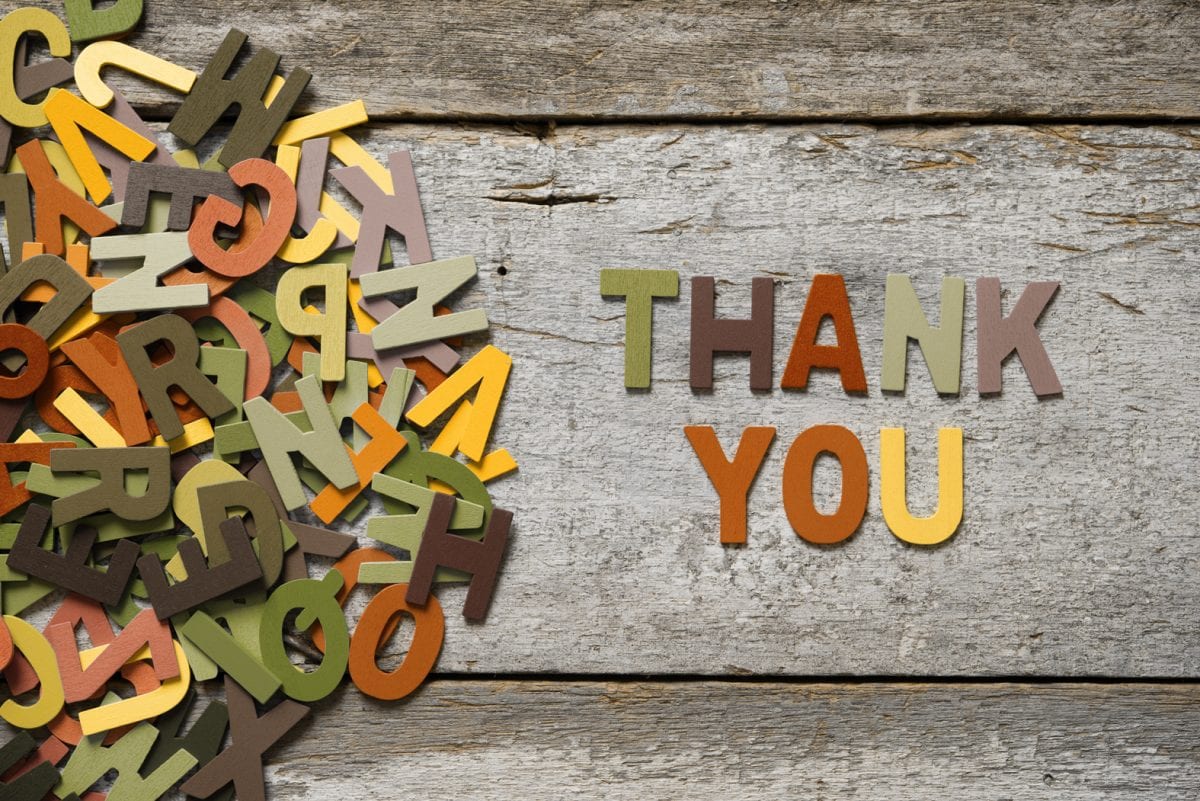In this season of Thanksgiving, let’s brush up on the art of giving thanks—at least as it related to your job search. Sending a thank you note after your job interview is a nice thing to do. It can also make or break your chances of getting the job (if you don’t believe us, see our previous blog post on 5 Ways to Lose a Job Offer After the Interview). For that reason, we compiled answers to the most frequently asked questions we get about thank you notes. These top seven tips can help you thank your way to the top.
Is there ever a reason not to send a thank you?
No. Never. If the interview left you wondering why on Earth you applied in the first place, you should still follow up with a simple, gracious thanks. You never know: The hiring manager could feel the same way about the organization, may be preparing to quit, and may think of you as their first hire at their new job. Even if the interview goes terribly wrong, don’t burn bridges.
Who should get a thank you note?
Get a business card from everyone who sat in on the interview—or, if it was a large panel, the key people who asked you questions—and write a separate thank you to each. A thank you should also go to anyone who helped you secure the interview (like your recruiter or the person who referred you). And if anyone went out of their way to assist you—like the receptionist who met you in the parking lot to give you a parking pass—include them or at least mention them in your thank you note to the interviewer.
What should the note say?
Start with a pure-and-simple thank you for their time and the opportunity. Then spend 2-4 sentences pointing out things you’d like them to remember about you. It could be a restatement of your key qualifications, anything important you didn’t get a chance to discuss in the interview, or something about the company, position, or team that you learned during the interview you found particularly compelling. Be as specific as possible to show you’re fully invested in the process. Use this guide by The Balance for ideas.

Is there anything that I should NOT include?
Don’t bring up salary, benefits or other sensitive issues. That may seem like common sense, but many job candidates fall into the trap of passive-aggressively mentioning those little details they still aren’t sure about. Also, getting names wrong or misspelling them are huge mistakes. If you didn’t get business cards or are unsure you wrote the names of your interviewers down correctly, do some research on LinkedIn or the organization’s website before guessing.
Do I send a thank you after every single interview?
Yes, but feel free to switch it up. Once you’ve had several interviews already, it’s OK to start emailing your gratitude if it’s going to the same group of people. Treat each interviewer as if they’re your most important contact. You never know who might hold the key—or stand in the way—of you being hired. Overlooking the person who seems like the lowest colleague on the totem pole is a common reason job candidates don’t get hired.
What if my handwriting is terrible or I’m horrible at spelling/grammar?
A benefit of sending an email is that you can (and should) use a spelling and grammar checker to ensure that everything you wrote is correct. For handwritten notes, too, type up your message first using an email or word processing program to spell/grammar check it before copying it down. If your handwriting is terrible, consider printing the message onto a note card and signing it or asking someone close to you to copy down your message for you.
Is there any circumstance in which an email is better than a handwritten note?
A handwritten note is a great novelty—one that usually gets remember most—but the process can be slow and unreliable. If the interviewer mentions that they’ll have a decision ready within a day or two, consider sending an email instead. You can use other clues—like the employees bragging about their paperless environment or the interviewer mentioning that they travel most of the time for work—to decide whether an email is more appropriate.
Should I send a gift or another creative thank you instead of a note?
Gifts are unnecessary and, in some circumstances like with state employees, accepting them can be viewed as unethical. As far as creativity goes, judge your level of poetic license by the work culture and job position. If you’re interviewing in a buttoned-upped corporate environment, you may want to play it safe with a traditional thank you note. If you’re interviewing for a creative position, you may want to be more inventive. Follow your gut to decide if a “shock and awe” thank you will work or is expected.




